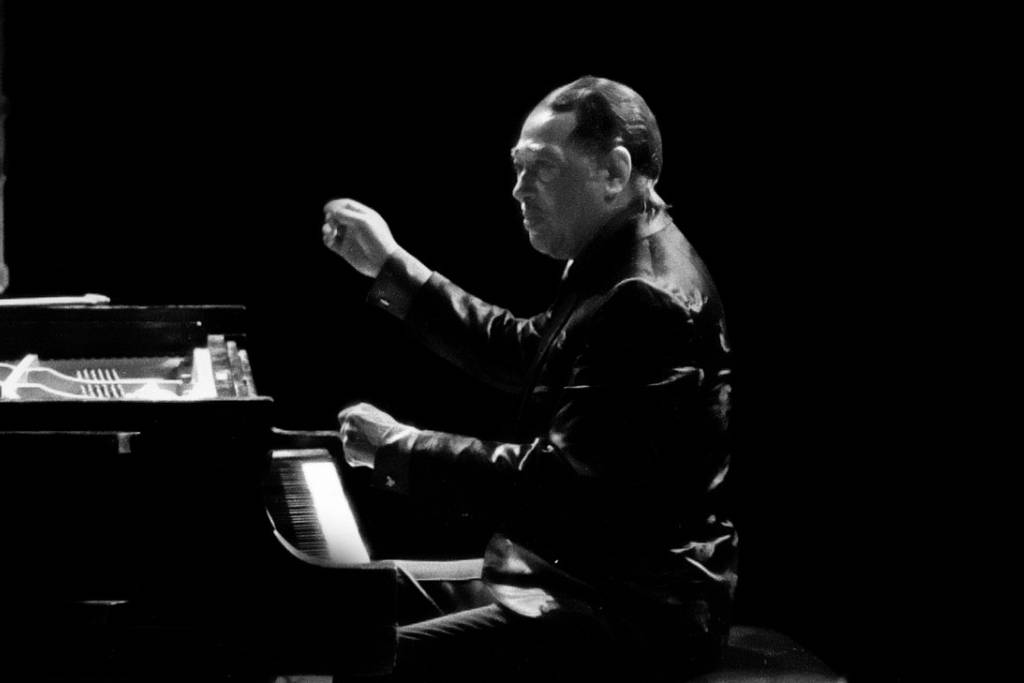
The year 2024 marks a double anniversary: 125 years since the birth of Edward Kennedy Ellington, and 50 years since his departure. Pianist Jason Moran and music historian Ashley Kahn join forces to examine Ellington’s enduring legacy and to help explain why, after all these years, his influence remains pervasive, why his music still sounds fresh and ceaselessly modern, and how his career continues to serve as a guiding light for artistic freedoms and racial pride and self-determination.
Jazz pianist, composer, and artist Jason Moran hails from Houston, Texas. He’s an alumnus of the Manhattan School of Music where he studied with Jaki Byard. Upon graduation, he studied with Andrew Hill and Muhal Richard Abrams. Moran’s 18-year relationship with Blue Note Records produced nine highly acclaimed recordings. His groundbreaking trio, The Bandwagon (with bassist Tarus Mateen and drummer Nasheet Waits) is currently celebrating their 25th anniversary.
Moran’s performances with Cassandra Wilson, Charles Lloyd, and the late Sam Rivers reveal the scope of Moran’s partnerships and music making. He’s also worked with visual artists Adrian Piper, Joan Jonas, Glenn Ligon, Adam Pendleton, Lorna Simpson, Kara Walker, Stan Douglas, and others. Recent awards and fellowships include the MacArthur Foundation, US Artists, Doris Duke Foundation and Ford Foundation. Moran collaborated with his wife, the mezzo-soprano/composer Alicia Hall Moran, as named artists in the 2012 Whitney Biennial, constructing BLEED, a five-day series of live performances spanning Motown to acupuncture to dance. They also created WORK SONGS for the 2015 Venice Biennial and continue to produce albums for their record label, YES RECORDS.
Since his first album, he has produced fourteen additional albums, created scores for Ava DuVernay’s films Selma and 13th, and author Ta-Nehisi Coates’ staged version of Between the World and Me. History is a recurring theme for Moran, who has mounted monumental touring works for Thelonious Monk (IN MY MIND: Monk at Town Hall 1959), Fats Waller (Fats Waller Dance Party, plus a Grammy-nominated album All Rise: An Elegy for Fats Waller) and James Reese Europe (James Reese Europe and the Absence of Ruin).
In 2018, Moran’s first solo museum exhibition opened at the Walker Art Center, Minneapolis, Minn., and traveled to ICA/Boston. The exhibition opened at the Whitney Museum of American Art in September 2019. Moran is currently the Artistic Director for Jazz at The Kennedy Center, teaches at New England Conservatory and Jazz Ahead, and curates the Artist’s Studio series for Park Avenue Armory in New York City.
Ashley Kahn is a Grammy-winning American music historian, author, professor and producer. He teaches at New York University’s Clive Davis Institute for Recorded Music, co-wrote Carlos Santana’s award-winning autobiography The Universal Tone: Bringing My Story to Light (Little, Brown, 2014), and is a producer of Carlos (2023), the documentary on Carlos Santana (Imagine Documentaries/Sony Pictures Classics). He has written books on two legendary recordings: Kind of Blue by Miles Davis and A Love Supreme by John Coltrane, and one on a legendary record label: The House That Trane Built: The Story of Impulse Records. His most recent book is George Harrison on George Harrison: Interviews and Encounters. He also edited Rolling Stone: The Seventies, a 70-essay overview of that pivotal decade.
Kahn, who was recently awarded a Lifetime Achievement Award by the Jazz Journalists Association, broke into the music business as a tour manager and music festival producer, has held a variety of positions in radio, television, and online businesses. As a journalist, his byline has appeared in many publications and websites, including Rolling Stone, The New York Times, The New Statesman, and others, and his writing has garnered four ASCAP/Deems Taylor awards, and three Grammy nominations. In 2015, he was awarded a Grammy for his album notes to the John Coltrane release Offering: Live at Temple University, and in 2017, he received the Robert Palmer-Helen Oakley Dance Award for Excellence in Writing from the Jazz Journalists Association. Kahn has worked on many music documentaries in a variety of roles: as producer/director—Carlos; Kind of Blue: Made in Heaven for Sony Music (2005) — as a consultant/writer — Netflix’s Chasing Trane (2016) and Stanley Nelson’s documentary on Miles Davis for PBS (2018)—and as on-screen interviewee in PBS’s Soundbreaking: Stories from the Cutting Edge of Recorded Music (2016); BBC’s 1959: The Year That Changed Jazz (2009); and many others.